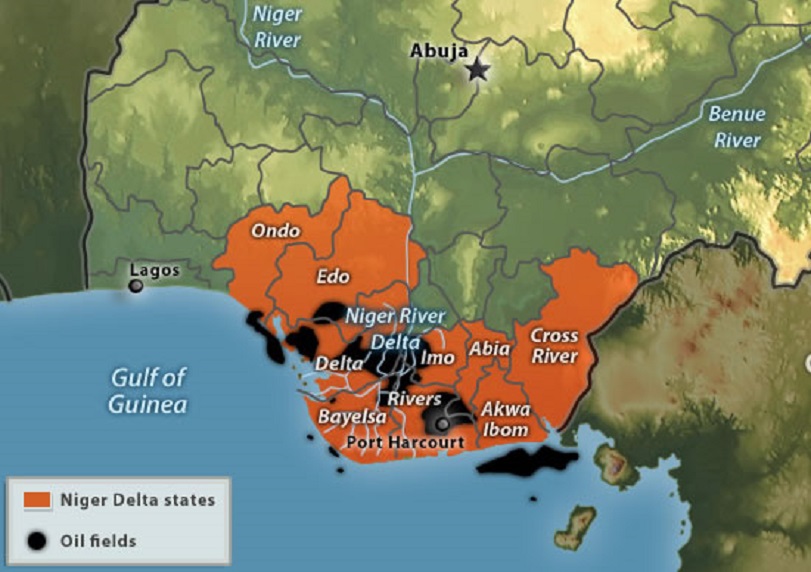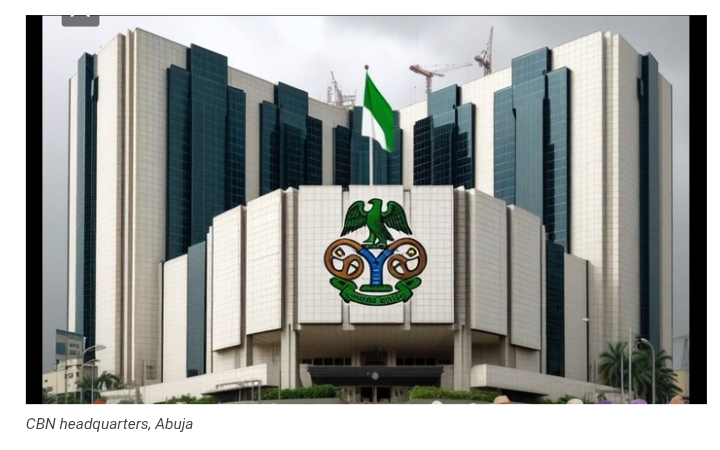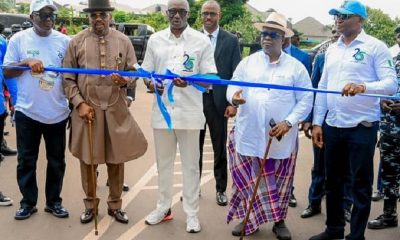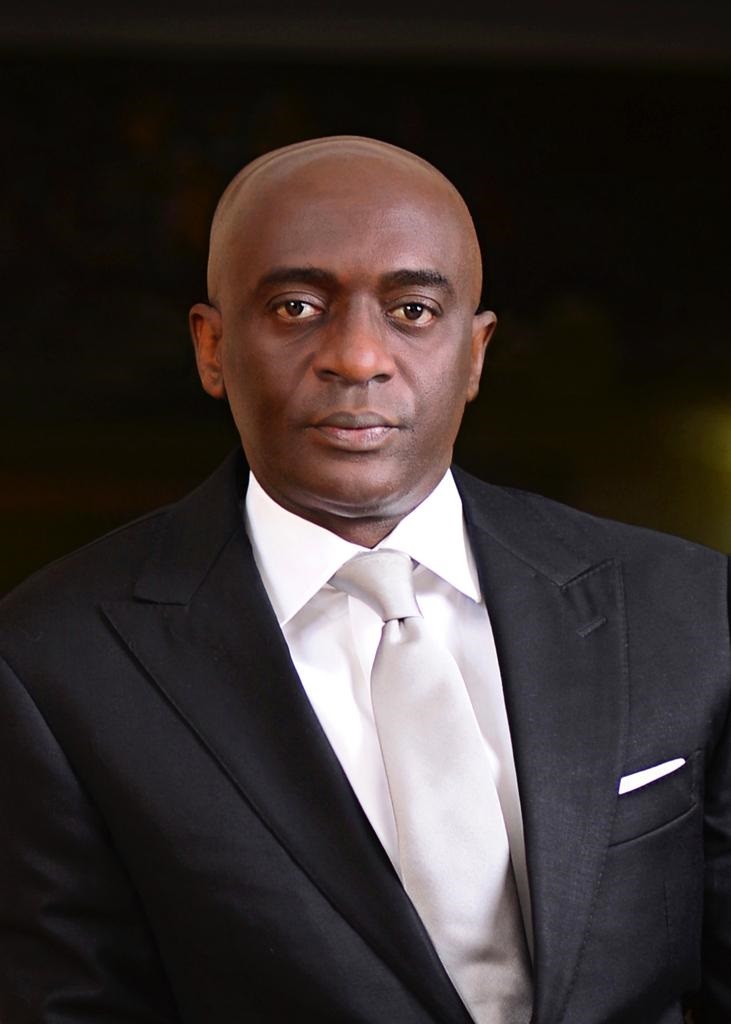Feature/OPED
2024 Niger Delta Region and Solution-Oriented Expectations

By Jerome-Mario Utomi
An African proverb states that the way a chimpanzee walks seamlessly reveals that it is not a happy animal’. Likewise, if a visit is made to the crude oil-bearing communities in the Niger Delta region of Nigeria, such a visitor will discover without labour that they are not happy people. This visible unhappiness is rooted in protracted underdevelopment, degradation and brazen neglect by state actors and private interests, which characterizes the environment.
Essentially, this concern over the poor environment partially explains the repertoire of literature covering the various epochs of the Region. Part of the literature is written objectively to ‘genuinely address the development challenges of the people while part of the literature was tilted to satisfy some sectional and personal interests’.
To arrest the drifting situation and address the protracted underdevelopment, successive federal governments in the country at different times and places created institutions to assist tackle the underdevelopment challenge that characterizes the region.
These institutions and agencies (past and present) include but are not limited; The Niger Delta Development Board (NDDB) created in the 1960s (rested). Oil Mineral Area Development Commission (OMPADEC) (rested), Niger Delta Development Commission (NDDC), Ministry of Niger Delta Affairs and Presidential Amnesty Programme (PAP), among others.
The above efforts and initiatives notwithstanding, analysts believe that the frustration, marginalization, alienation and poverty in the Region stems from, and have its roots in a piece of legislation that makes oil minerals the sole property of the Federal Government of Nigeria in section 44(3) of the 1999 Constitution which, in part provides, the entire property in and control of minerals, mineral oil and natural gas in, under or upon any land in Nigeria or in, under or upon the territorial waters and exclusive economic zone of Nigeria vested in the government of the Federation and shall be managed in such manner as may be prescribed by the national assembly.
In fact, there are signs that unless something theatrical is done to holistically serve and save the people of the region from infrastructural backwardness and other multifaceted challenges such as galloping youth unemployment, chances are that in the near future, a crisis that may unnerve the people and cause the region to tremble for safety may occur.
What the above information tells us as a nation is that more work needs to be done and more reforms to be made particularly by the government to assist douse the doubt which presently flourishes within the region.
The facts are there and speak for it.
Take, as an illustration, a recent summit held in Delta state, with participants, drawn from the academia, members of specialized groups, presidential amnesty beneficiaries, and students at various institutions of higher learning in the country among others, to proffer solutions to Niger Delta challenge, the gathering queried the Federal Government’s current non-participatory approach to development in the region, as well as its protracted inabilities to embrace a broad-based consultative approach that will give the people of the Niger Delta some sense of ownership over their issues.
While noting that the challenges confronting the Niger Delta as a region dates back to the 15th century, the gathering submitted that to effectively resolve the Niger Delta crisis, the government and other Nigerians should begin to see the problem of the Niger Delta as a national one and not restricted to the region.
Participants were particularly not happy that greed, selfishness, tribalism and brazen absence of political will arising from poor leadership in the country, have become potent factors that derailed the well-conceived PAP created to tackle youth restiveness resulting from galloping unemployment in the region as well as hindered the actualization of Federal Government proposed but now abandoned modular refineries in the region.
Noting that for the challenges presently confronting the region to be frontally tackled, Federal Government must take both practical and pragmatic steps to hold a sincere conversation with Niger Deltans aimed at operationalising modular refineries in the region anchored on the tripod of receipt system, transparent pricing and supervised via a statutory body established by enabling acts for that purpose/objective.
They further regretted that 14 years after the presidential proclamation, the programme has neither dealt with the fundamentals of the Niger Delta struggle nor faithfully addressed the three pillars of the Amnesty Programme: Disarmament, rehabilitation and reintegration; but painfully left the targeted beneficiaries of the programme more as victims of political deceit and manipulation by selfish politicians and other non-state actors that have recently hijacked the programme.
While they observed that the amnesty programme had become a cesspool of corruption and avenues for revenue leakages which must be blocked for efficient management of the programme, the group argued that the Presidential Amnesty Office must stop giving handouts to beneficiaries and in its place develop a workable and democratized roadmap that will ensure that all amnesty beneficiaries are gainfully employed or adequately empowered.
The gathering, therefore, called on the federal government to strengthen PAP to achieve its original Strategic Implementation Action Plan designed to massively develop the Niger Delta, which unfortunately has been ignored for a very long time by the federal government.
Still on the urgent need to have PAP revamped for optimum delivery on its mandate, this piece considers the imperative that the Federal Government and other relevant stakeholders critically x-ray the concern recently expressed by Alabo Nengi James, second National Vice President, Ijaw National Congress (INC), at a function held in Warri, Delta state where he among other fears noted that the Presidential Amnesty Programme is failing in its responsibilities because it was executed with militarization, rather than with civilianization.
Nengi further stressed that the Amnesty Programme was poorly handled by military elements, which lacked the capacity for mediation. Stakeholders were not given enough opportunities through the Post Amnesty Conference to discuss the best ways to implement the Amnesty Programme. The Presidential Amnesty office lacks the personnel with the requisite skills set to manage the Amnesty Programme.
The Presidential Amnesty proclamation, he continued, did not factor in mediation and conflict transformation. This is sequel to the poor strategic conflict assessment of the Niger Delta struggle. Amnesty is no instrument for conflict resolution or conflict management. Amnesty is a general pardon of offence by the government. It is a deliberate overlooking of offences against a government. It is a pardon to release criminally culpable persons from the just punishment of the law.
For me, it will be highly rewarding if agencies such as the Presidential Amnesty Programme (PAP) take practical steps to employ the large army of professionally trained ex-militants from the region who are currently without jobs.
Talking about youth unemployment in Nigeria, a report recently puts it this way: “We are in a dire state of strait because unemployment has diverse implications. Security-wise, a large unemployed youth population is a threat to the security of the few that are employed.
To get started, it will be rewarding in my view, if the federal government by President Ahmed Bola Tinubu through the Ministry of Niger Delta Affairs gets the NDDC adequately funded to carry out more people oriented legacy projects and programmes.
The above call is predicated on the fact that the NDDC governing board is presently peopled with Nigerians who are well informed, self-contained and quietly influential, who are willing, ready and eager to bring the region and its people out of its present infrastructural and socioeconomic woods.
Also working in favour of the above demand for more funding is the rock-solid reality that human beings, which include Niger Deltans are won over by the present, far more than by the past, and when they decide that what is being done here and now is good, they content themselves with that, and do not go looking for anything else.
Finally, in addition to the federal government addressing all the fears raised by stakeholders, the PAP handlers should on their part, devise more creative ways to handle the current youth unemployment challenge particularly that of the trained ex-militants and other similar challenges that have to do with students scholarship among others.
These are little efforts that will lead to great results in 2024.
Jerome-Mario Utomi is the Programme Coordinator (Media and Public Policy) for Social and Economic Justice Advocacy (SEJA), Lagos. He can be reached via je**********@***oo.com/08032725374
Feature/OPED
If Dangote Must Start Somewhere, Let It Be Electricity

By Isah Kamisu Madachi
The news that the Nigerian businessman, Aliko Dangote, plans to expand his business interest into steel production, electricity generation, and port development as part of his broader ambition to accelerate industrialisation in Africa deserves a quick reflection on the promises it carries for Nigeria. It is coming from Dangote at a time when many African countries, including Nigeria, are still struggling with below-average industrial capacity. This move speaks to something important about how prosperity is actually built.
In their Influential book ‘The Prosperity Paradox: How Innovation Can Lift Nations Out of Poverty,’ Clayton Christensen, Efosa Ojomo, and Karen Dillon argue that countries rarely overcome poverty through aid, policy declarations or resource endowments alone. According to them, the effective engine of prosperity has always been market-creating innovations by private and public enterprises that build new industries, generate jobs, and expand economic opportunities for ordinary people.
Even though their theory focuses largely on creating something new or producing it exceptionally, Dangote’s new industrial ambition seems closer to the latter. It is about producing essential things at a scale and efficiency that the existing system has failed to achieve.
Take, for example, the electricity sector in Nigeria. Since the beginning of the current Fourth Republic, billions of dollars have been allocated to power sector reforms, yet electricity supply remains unstable, and many Nigerians still depend heavily on generators to power their homes and businesses. The situation has continued to deteriorate despite the enormous resources committed to the sector by the coming of every new administration.
This is not surprising. In The Prosperity Paradox, the authors explain how nations and even international organisations sometimes keep investing huge resources in certain activities only to realise much later that they were simply hitting the wrong target. The problem is not always the lack of funding; sometimes it is the absence of a functioning market system capable of producing and distributing essential services efficiently.
Seen from this perspective, Dangote’s move into electricity generation may mean more than just an investment. It could be an attempt to tackle one of the most critically lingering bottlenecks in Nigeria’s economic development. If I were to be asked to decide which sector Dangote should begin with in this new industrial plan, I would unhesitatingly choose electricity. It is the most embattled, deeply corrupted and seemingly jeopardised beyond repair, yet the most important sector for the everyday life of citizens.
Stable electricity has the power to transform productivity across every sector. When power supply becomes reliable, small businesses are created, productivity is boosted across all sectors, and households enjoy a better quality of life. Nigeria’s long-standing energy poverty has been strangulating the productive potential of millions of people for decades. Fixing that problem alone would unlock enormous economic possibilities more than expected.
Beyond the issue of productivity, Dangote’s entry into these sectors could also stimulate competition. Healthy competition is one of the most effective drivers of efficiency in any economy. The example of the refinery project already shows how a large-scale private investment can disrupt long-standing structural weaknesses within a sector. A similar dynamic in the proposed sectors could encourage other investors to participate and expand industrial capacity.
Nigeria, by 2030, is projected to need 30 to 40 million new jobs to absorb its rapidly growing population. The scale of this challenge means that the government alone, especially in the Nigerian context, cannot create the necessary opportunities to fill this gap. Private enterprises will have to play a major role in expanding productive sectors of the economy. If supported by the right policy environment, they could contribute significantly to narrowing Nigeria’s widening job gap.
Of course, no single business initiative can solve all structural challenges in the economy. But bold investments of this nature often serve as catalysts for broader economic transformation. With the right support and healthy competition from other investors, initiatives like these could help push Nigeria closer to the kind of industrial foundation that many developed economies built decades ago.
In the end, the lesson is simple: prosperity rarely emerges from policy debates alone. It often begins with large-scale productive ventures that reshape markets, unlock productivity at both small-scale and large-scale businesses, and create direct and indirect economic opportunities for millions of common men and women.
Isah Kamisu Madachi is a policy analyst and development practitioner. He writes via is***************@***il.com
Feature/OPED
Love, Culture, and the New Era of Televised Weddings

Weddings have always held a special place in African culture. They are more than ceremonies; they are declarations of love, family, identity, and tradition. From the vibrant colours of aso-ebi to the rhythmic sounds of live bands and the emotional exchange of vows, weddings represent a moment of cultural heritage.
In recent years, weddings have gone beyond physical venues. What was once an exclusive gathering for family and friends has transformed into a shared experience for wider audiences. Social media first opened the door, allowing guests and admirers to witness love stories in real time through Instagram posts, TikTok highlights, and YouTube recaps.
And now, television platforms are taking this even further, giving weddings a new kind of permanence and reach.
High-profile weddings, like the widely celebrated union of Adeyemi Idowu, popularly known as Yhemolee (Olowo Eko) and his wife Oyindamola, fondly known as ThayourB, captured massive public attention. Moments from their wedding became a live shared experience on television (GOtv & DStv).
From the high fashion statements to the emotional highlights, viewers were able to feel part of something bigger, a reminder that weddings inspire not just both families but entire communities.
This shift reflects a broader reality: weddings today are content. They inspire conversations about fashion, relationships, lifestyle, and aspiration. They preserve memories in ways previous generations could only imagine. For Gen Z couples, their wedding is no longer just a day; it becomes a story that can be revisited, celebrated, and even inspire others planning their own journey to forever.
Broadcast platforms like GOtv are playing a meaningful role in this transformation. By bringing wedding-related content directly into homes, GOtv is helping audiences experience these moments not just through social media snippets but in real time.
One of the most notable offerings is Channel 105, The Wedding Channel, Africa’s first 24-hour wedding channel, available on GOtv. The channel is fully dedicated to African weddings, lifestyle, and bridal fashion, showcasing everything from dream ceremonies to the realities of married life. Programs like Wedding Police and Wedding on a Budget, and shows like 5 Years Later, offer a deeper look into marriage itself, reminding viewers that weddings are just the beginning of a lifelong journey.
GOtv is preserving culture, celebrating love, and inspiring future couples with this channel. It allows viewers to witness traditions from different regions, discover new ideas, and feel connected to moments that might otherwise remain private.
With platforms like GOtv, stories continue to live on screens across Africa, where love, culture, and celebration can be experienced by all.
To upgrade, subscribe, or reconnect, download the MyGOtv App or dial *288#. For catch-up and on-the-go viewing, download the GOtv Stream App and enjoy your favourite shows anytime, anywhere.
Feature/OPED
Brent’s Jump Collides with CBN Easing, Exposes Policy-lag Arbitrage

Nigeria is entering a timing-sensitive macro set-up as the oil complex reprices disruption risk and the US dollar firms. Brent moved violently this week, settling at $77.74 on 02 March, up 6.68% on the day, after trading as high as $82.37 before settling around $78.07 on 3 March. For Nigeria, the immediate hook is the overlap with domestic policy: the Central Bank of Nigeria (CBN) has just cut its Monetary Policy Rate (MPR) by 50 basis points to 26.50%, whilst headline inflation is still 15.10% year on year in January.
“Investors often talk about Nigeria as an oil story, but the market response is frequently a timing story,” said David Barrett, Chief Executive Officer, EBC Financial Group (UK) Ltd. “When the pass-through clock runs ahead of the policy clock, inflation risk, and United States Dollar (USD) demand can show up before any oil benefit is felt in day-to-day liquidity.”
Policy and Pricing Regime Shift: One Shock, Different Clocks
EBC Financial Group (“EBC”) frames Nigeria’s current set-up as “policy-lag arbitrage”: the same external energy shock can hit domestic costs, FX liquidity, and monetary transmission on different timelines. A risk premium that begins in crude can quickly show up in delivered costs through freight and insurance, and EBC notes that downstream pressure has been visible in refined markets, with jet fuel and diesel cash premiums hitting multi-year highs.
Market Impact: Oil Support is Conditional, Pass-through is Not
EBC points out that higher crude is not automatically supportive of the naira in the short run because “oil buffer” depends on how quickly external receipts translate into market-clearing USD liquidity. Recent price action illustrates the sensitivity: the naira was quoted at 1,344 per dollar on the official market on 19 February, compared with 1,357 a week earlier, whilst street trading was cited around 1,385.
At the same time, Nigeria’s inflation channel can move quickly even during disinflation: headline inflation eased to 15.10% in January from 15.15% in December, and food inflation slowed to 8.89% from 10.84%, but energy-led transport and logistics costs can reintroduce pressure if the risk premium persists. EBC also points to a broader Nigeria-specific reality: the economy grew 4.07% year on year in 4Q25, with the oil sector expanding 6.79% and non-oil 3.99%, whilst average daily oil production slipped to 1.58 million bpd from 1.64 million bpd in 3Q25. That mix supports external-balance potential, but it also underscores why the domestic liquidity benefit can arrive with a lag.
Nigeria’s Buffer Looks Stronger, but It Does Not Eliminate Sequencing Risk
EBC sees that near-term external resilience is improving. The CBN Governor said gross external reserves rose to USD 50.45 billion as of 16 February 2026, equivalent to 9.68 months of import cover for goods and services. Even so, EBC views the market’s focus as pragmatic: in a risk-off tape, investors tend to price the order of transmission, not the eventual balance-of-payments benefit.
In the near term, EBC expects attention to rotate to scheduled energy and policy signposts that can confirm whether the current repricing is a short, violent adjustment or a more durable regime shift, including the U.S. Energy Information Administration (EIA) Short-Term Energy Outlook (10 March 2026), OPEC’s Monthly Oil Market Report (11 March 2026), and the U.S. Federal Reserve meeting (17 to 18 March 2026). On the domestic calendar, the CBN’s published schedule points to the next Monetary Policy Committee meeting on 19 to 20 May 2026.
Risk Frame: The Market Prices the Lag, Not the Headline
EBC cautions that outcomes are asymmetric. A rapid de-escalation could compress the crude risk premium quickly, but once freight, insurance, and hedging behaviour adjust, second-round effects can linger through inflation uncertainty and a more persistent USD bid.
“Oil can act as a shock absorber for Nigeria, but only when the liquidity channel is working,” Barrett added. “If USD conditions tighten first and domestic pass-through accelerates, the market prices the lag, not the headline oil price.”
Brent remains an anchor instrument for tracking this timing risk because it links energy-led inflation expectations, USD liquidity, and emerging-market risk appetite in one market. EBC Commodities offering provides access to Brent Crude Spot (XBRUSD) via its trading platform for following energy-driven macro volatility through a single instrument.
-

 Feature/OPED6 years ago
Feature/OPED6 years agoDavos was Different this year
-
Travel/Tourism10 years ago
Lagos Seals Western Lodge Hotel In Ikorodu
-

 Showbiz3 years ago
Showbiz3 years agoEstranged Lover Releases Videos of Empress Njamah Bathing
-

 Banking8 years ago
Banking8 years agoSort Codes of GTBank Branches in Nigeria
-

 Economy3 years ago
Economy3 years agoSubsidy Removal: CNG at N130 Per Litre Cheaper Than Petrol—IPMAN
-

 Banking3 years ago
Banking3 years agoSort Codes of UBA Branches in Nigeria
-

 Banking3 years ago
Banking3 years agoFirst Bank Announces Planned Downtime
-

 Sports3 years ago
Sports3 years agoHighest Paid Nigerian Footballer – How Much Do Nigerian Footballers Earn


















